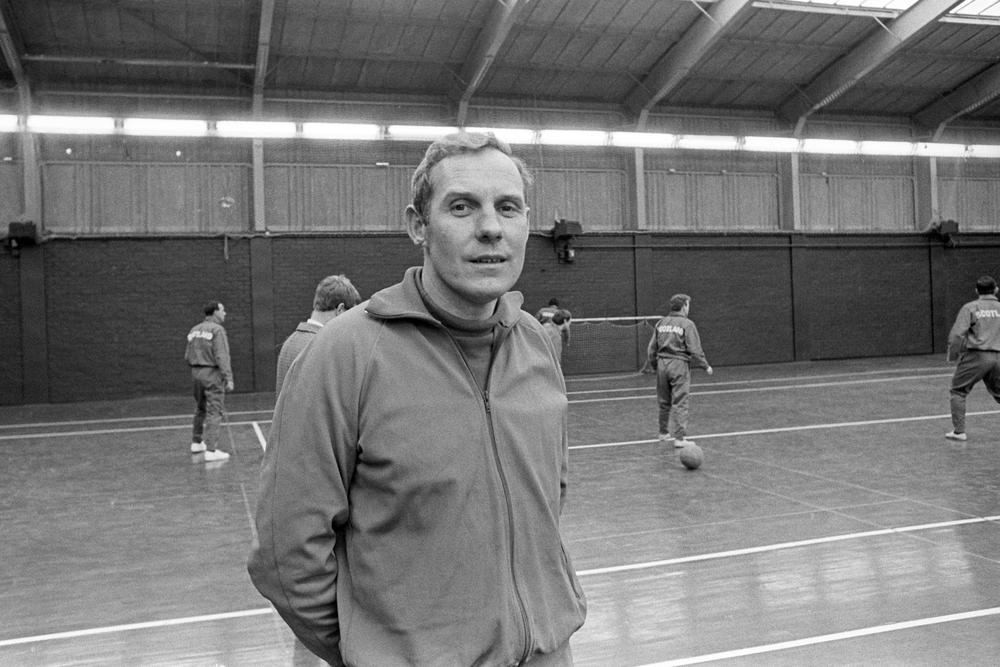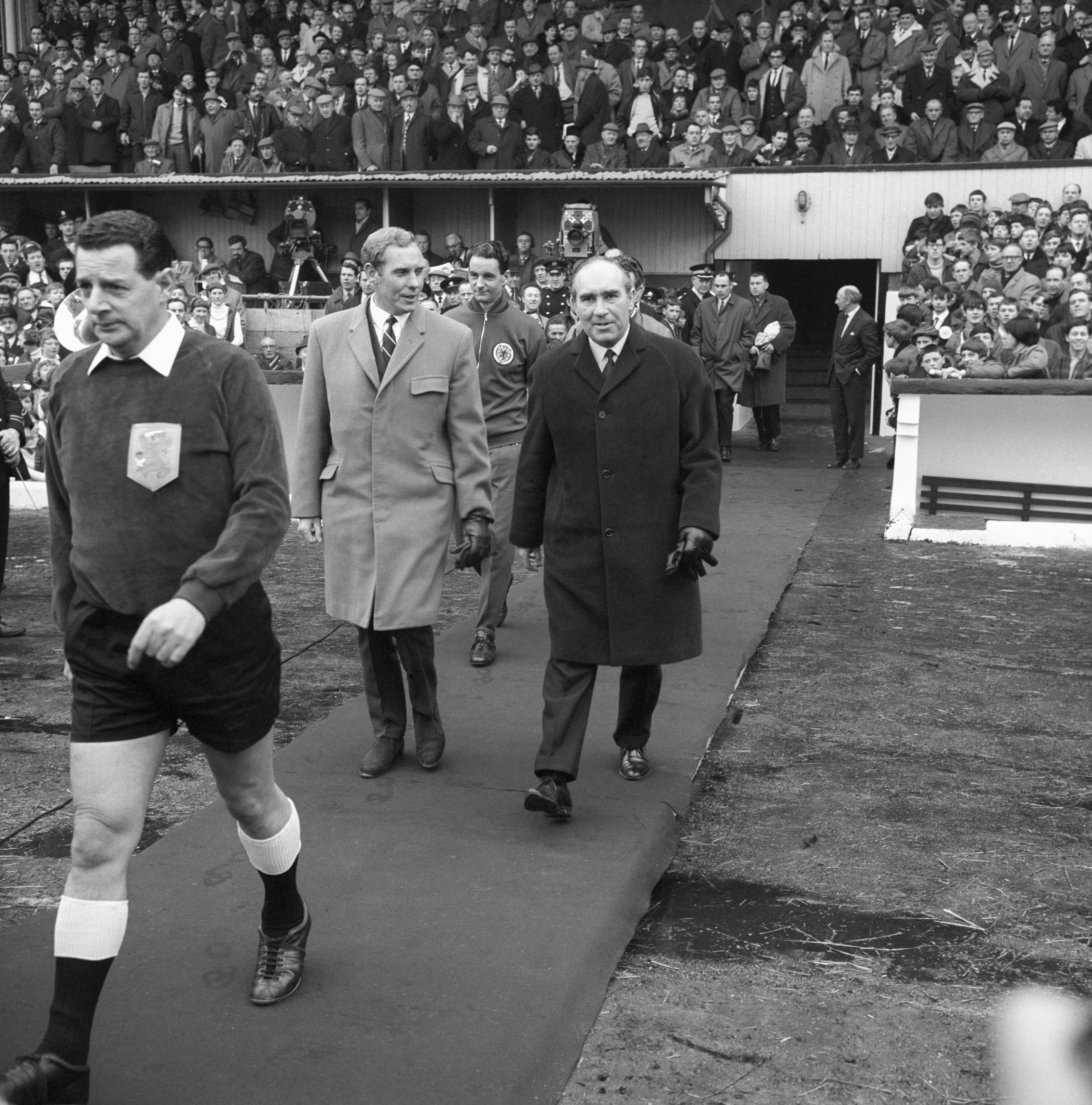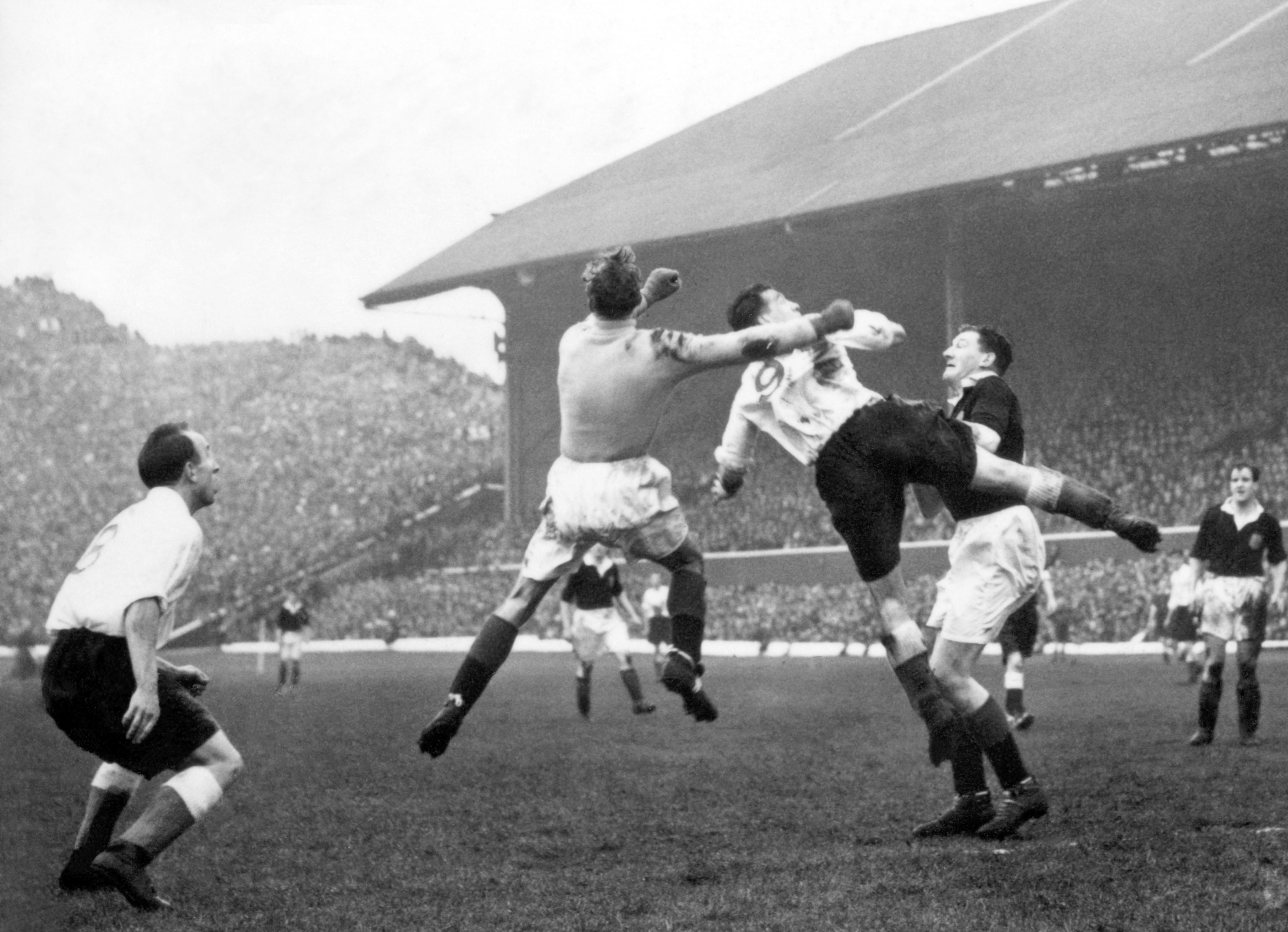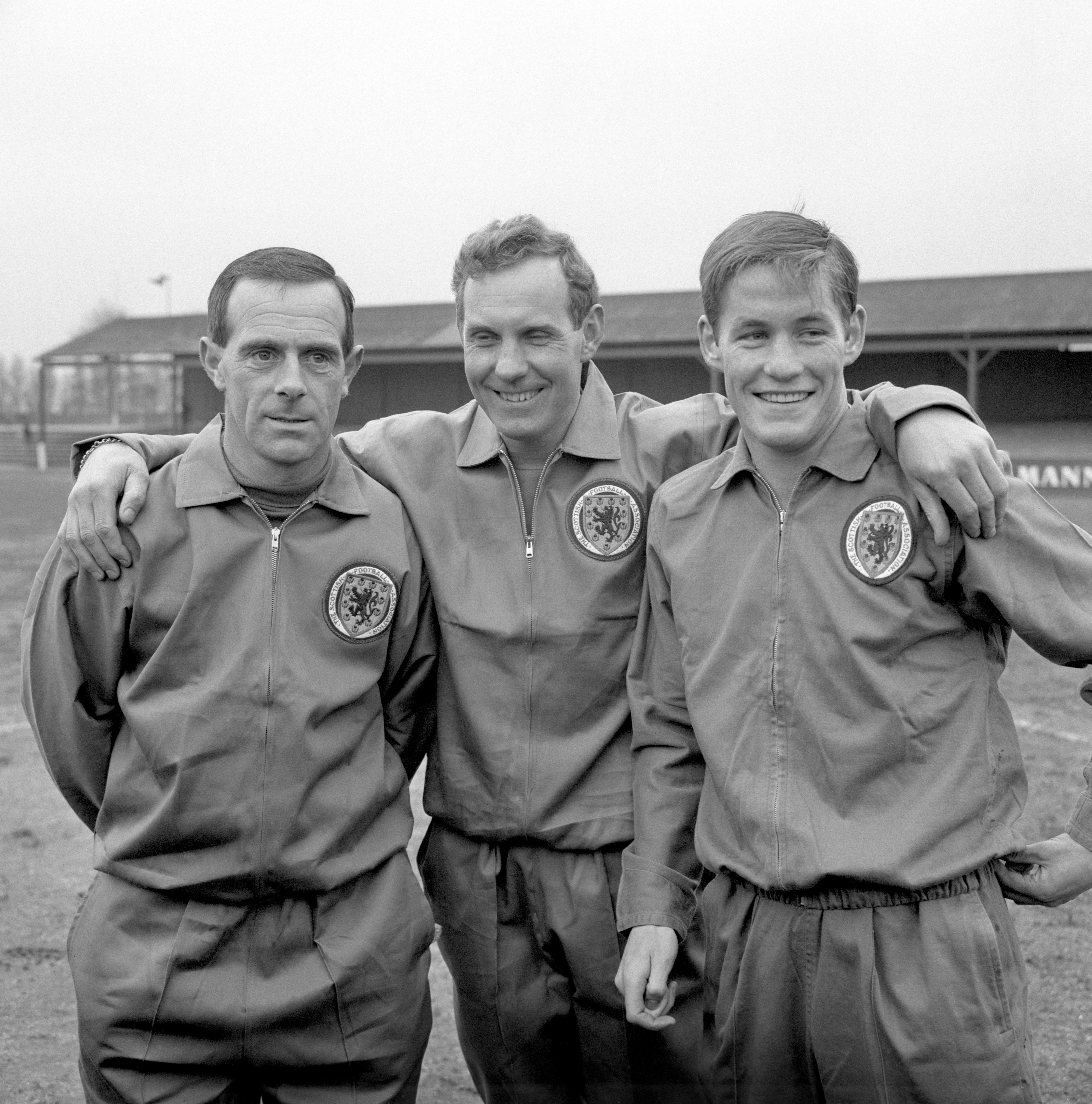Bobby Brown, the man who made Scotland ‘unofficial champions of the world’

When Scotland needed a safe pair of hands to become their first ever full-time boss, Bobby Brown was the man Hampden chiefs turned to.
The hope was that Brown, who died on Wednesday aged 96, would produce a side as hard to beat as he himself had been during his playing days, when he formed part of Rangers’ famed Iron Curtain defence.
But as it turned out, Brown’s stint in charge of the Scots started off not only with arguably the country’s greatest ever win, but a swashbuckling performance that has gone down in national folklore.
The 3-2 triumph over Alf Ramsey’s World Cup winners in April 1967 might not have dethroned England but it was enough for the Tartan Army to crown itself the “unofficial champions of the world”.
Amid the summer of love, Scotland were seen cavorting across the Wembley turf as thousands of Scots who had made their way south watched on awestruck.
No one man had ever wielded so much power when it came to dishing out Scotland caps as Brown until that point, with the national team previously chosen by a committee.

He handed a debut to veteran Celtic goalkeeper Ronnie Simpson – his former Queen’s Park understudy – and also threw in teenager Jim McCalliog for his first cap. His reward was seeing the Sheffield Wednesday youngster net the winner.
The best features, fun and footballing quizzes, straight to your inbox every week.
Jim Baxter, whose career was on the slump after leaving Rangers, wound back the clocks with an imperious display capped off by his brazen ball-juggling act.
“We should have had five or six,” said Brown in a book about his career released in 2017. “Without a doubt it was the best managerial debut I could have been given.”
Not that his big achievement earned him instant fame. As his squad partied the night away after the match, he stepped out of their London hotel for a breath of fresh air where he bumped into a rather lubricated member of the Tartan Army.
“See you, Scotland 3 England 2 – we beat you easily today and don’t ever forget it”, declared the fan unawares he was jabbing his finger into the chest of the man who had masterminded the whole affair.
Brown was born in the small Stirlingshire village of Dunipace in March 1923. His journey to footballing success began when he would join the men from his village for “challenge” matches against nearby parishes. Being the youngest at just 11 years old, he was put in goal but the pint-sized stopper was no weak link.

At school, his talents were shaped by his PE teacher Hugh Brown – whose son Craig would follow in Bobby’s footsteps by becoming Scotland manager.
It was in 1939, at the age of 17, that he got a “bolt from the blue” after helping his school Falkirk High claim a 3-1 win over St Aloysius. At the full-time whistle, two strangers raced onto the pitch and announced that he was required by Queen’s Park later that afternoon to face Celtic at Parkhead.
The pair turned out to be scouts for the Spiders and so it was that Brown, just hours after turning out for his school, made his senior debut in a 4-4 draw against the Hoops.
He would continue to represent Queen’s Park during the war despite being posted to Portsmouth after signing up for the RAF, while also guesting for the likes of Chelsea and Plymouth Argyle.
His displays in inter-service matches also propelled him to prominence and, after being demobbed back to Scotland at the end of hostilities, he was handed his first Scotland cap in a friendly with Belgium in January 1946, with Brown remaining the last amateur to play for Scotland.
It was his move to Ibrox later that year that saw him link up with defenders George Young, Jock Shaw, Willie Woodburn, Ian McColl and Sammy Cox as they formed the Gers’ notoriously stingy rearguard.

Together their efforts in shutting out rivals helped Brown win five league titles and four Scottish Cups over the next decade before ending his playing career at his boyhood club Falkirk.
A move into management followed in 1958 as he took over at St Johnstone, with his steady leadership of the Perth club seeing them twice promoted to the top-flight during a nine-year spell in charge.
It was that dependable record that convinced the Scottish Football Association to hand him the national team reigns.
However, having achieved so much in his first game in charge, it was always going to be difficult for Brown to top that achievement.
In all he managed Scotland 28 times before his frustrations with repeated call-offs led him to resign in 1971. He would oversee just eight further victories following his Wembley success.
After a brief stint as Hull boss and a scouting assignment with Plymouth, Brown spent his later years based in Helensburgh with his late wife Ruth where they ran a restaurant and a number of gift shops.
FourFourTwo was launched in 1994 on the back of a World Cup that England hadn’t even qualified for. It was an act of madness… but it somehow worked out. Our mission is to offer our intelligent, international audience access to the game’s biggest names, insightful analysis... and a bit of a giggle. We unashamedly love this game and we hope that our coverage reflects that.
 Join The Club
Join The Club






